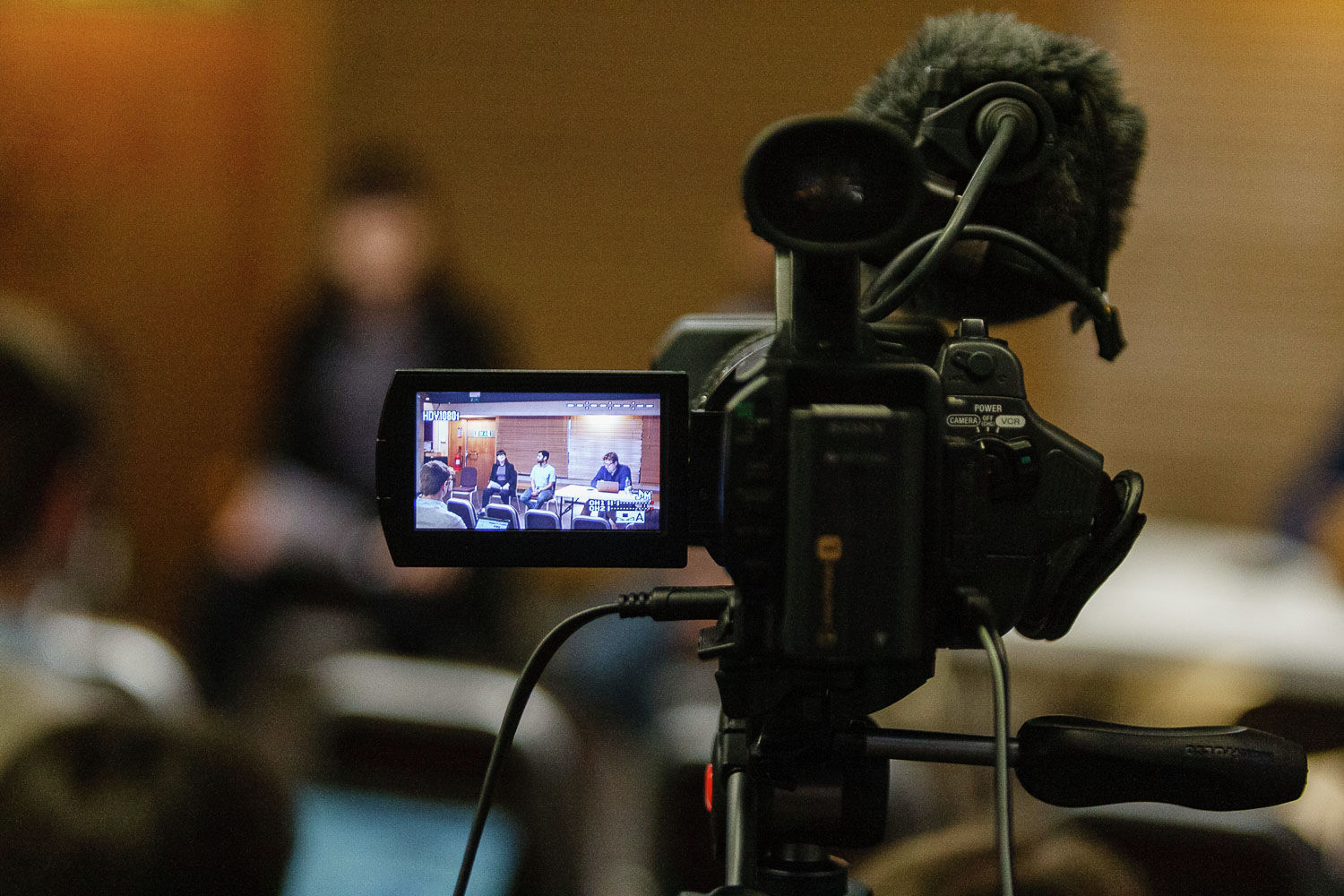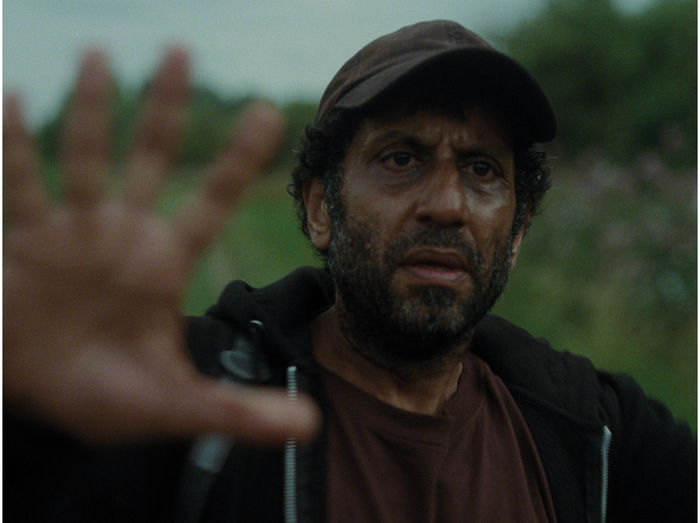Our Film & TV writers speak to the Cambridge students breaking into the screenwriting industry, tracing their origin story from their student days. From discussing the exciting projects they’re currently working on to where they see themselves in the future, they spill the industry secrets for those trying to get their start in writing for the big screen.
Sergio-Niblett Morales
Interviewed by Alex Brian
Sergio-Niblett Morales is studying an MSt in Writing for Performance at Wolfson College with plans to become a professional screenwriter.
What inspired you to pursue screenwriting?
As an undergrad pursuing novel writing, I found myself visualising my stories rather than just writing them. Often, I was imagining what they would look like on screen. Thus, I began the shift towards screenwriting by joining a society and taking an elective module dedicated to the subject.
Which screenwriter has had the greatest influence on your work?
Rian Johnson and specifically the Knives Out movies. Glass Onion is a particularly (excuse the pun) well-layered screenplay, full of intriguing metaphors and plot twists that are fun to dissect.
What is the most important lesson you have taken away from your course in Writing for Performance?
Not to be afraid of trying new ideas and testing your creativity. I have often felt imposter syndrome during this course – and still do – but I try to remind myself that creativity is a process and imperfection is allowed.
How did your undergrad course prepare you for screenwriting?
It meant I had a decent grasp of the elements of storytelling. However, to transition to screenwriting, there was one piece of advice I needed which still helps me today: “For each scene, ask yourself: ‘Would the story make sense without this?’ If the answer is yes, it was never that necessary.”
“The initial spark of an idea is always so exciting”
What projects are you currently working on?
My second-year project is a sci-fi/horror/fantasy film about a mysterious town in the woods that gets attacked by a creature. There are murders, conspiracies, queer love, car chases and lots of jump scares! It’s very much in its early stages but I’m hoping it will turn into something great.
Which do you enjoy the most about screenwriting?
The initial spark of an idea is always so exciting. There have been countless occasions when, whilst trying to sleep, I have come up with an idea and immediately typed it into my Notes app for deciphering the next day.
Chakira Alin
Interviewed by Abby Reeves
After studying English and partaking in numerous film and theatre projects while at Cambridge, Chakira Alin graduated in 2022 and has since written and directed a self-funded short film The Pilgrimage.
How can you get the most out of making a short film in Cambridge?
Make the most of the pots of Cambridge money! Other than that, making an amateur film is all about calling in favours. In Cambridge, everyone wants to get involved in theatre so there’s always a cast and crew available who are willing to work for free, which isn’t possible or ethical in the real world. Hence, the short film I made in Cambridge only cost £300 to make. We could just ring up cafes and ask to shoot there and they’d be very accommodating. You need to capitalise on living in a city which is very welcoming to student film and full of eager and talented people.
How did you find translating The Pilgrimage from paper to screen?
It’s scary having a vision and wanting to execute it the right way. However, the solution is collaboration, especially with the director of photography. We made a moodboard with references for each scene so we knew what we wanted it to look like when it came to shooting. You have to be very flexible, especially when working with a small budget, balancing your creative vision and logistical concerns. Sometimes the assistant director will shut you down due to lack of time or money and you just have to do your best within those restraints.
What can people expect when starting in the film industry?
For the first couple of years, you’re not going to get paid. I haven’t been paid for my screenwriting yet but it’s a passion project. You need to be prepared to be a dogsbody, making teas and coffees and doing odd jobs. During these early stages, you’re being paid in experience, which won’t pay the rent but you do learn so much just from being on set!
What’s next on the horizon for you?
We’ve started editing The Pilgrimage, which should be released around March. I’ve finished the screenplay for my first feature-length film, which has been in the works since I was 17. I’m also directing - and, for the first time, acting in - another short film, which should be a great challenge for me.
Hannah Collins
Interviewed by Georgia Funicane
Hannah Collins studied English at Medwards, created the film society Cambridge Creatives and is now a Script Editor at Quay Street Productions.
Describe your current position at Quay Street Productions.
As a Script Editor, my job is varied and I work on multiple projects simultaneously. Recently I finished on a production called DEAD HOT, which I have been a part of since early development, helping with storylining and feeding back on drafts of episodes. During pre-production, I worked with the director and producer to bring the writer’s vision to life. I was also involved in parts of the edit, checking for continuity and providing feedback. I’m constantly having “pinch me” moments and I feel very lucky that I get to play make-believe for my job.
You were one of the founders of the student-run group Cambridge Creatives. What gaps did this fill in the Cambridge arts scene?
At the time, there were few opportunities for student screenwriting and filmmaking. With the help of CUADC, we started the Cambridge Creatives screenwriting competition, judged by industry professionals and offering the chance to have the winning script produced into a short. We also showcased a variety of roles in the creative industries in our Q&As and provided another outlet for student journalists with the reviews on our website.
How did you first get involved in the scene?
I directed a piece at a HATCH new writing night before producing the Corpus freshers’ play, Beautiful Thing. I recommend embracing all the freshers’ opportunities because, as well as providing experience, they’ll help you meet a group of people to collaborate with. Competitions are really helpful too. Having a deadline will make you finish that project you’ve been sitting on for a while!
“The more you write, the more you finesse your style and prove you have a wide variety of stories to tell”
What led you to become a Script Editor?
I found out about development from Nicola Shindler, who I interviewed for Cambridge Creatives, and I loved the sound of it. So I tried to secure work experience in the industry and contacted many companies, creating a huge spreadsheet to record who I had asked. Eventually, I scored a few weeks of work experience at Quay Street before doing some freelance script and book reporting for them. After graduation, I interviewed to become a Development Editor. And the rest is history!
What are mistakes you often see student screenwriters making?
Overcomplicating things! It’s worth setting yourself clear parameters (a few characters or one timeline), so you can focus on what’s important: well-perceived dialogue and an engaging narrative arc.
What is your advice for aspiring screenwriters?
Just keep writing! The more you write, the more you finesse your style and prove you have a wide variety of stories to tell. It’s helpful to have your work produced into plays or shorts and submit these to festivals. Don’t be afraid of working between stage and screen.


